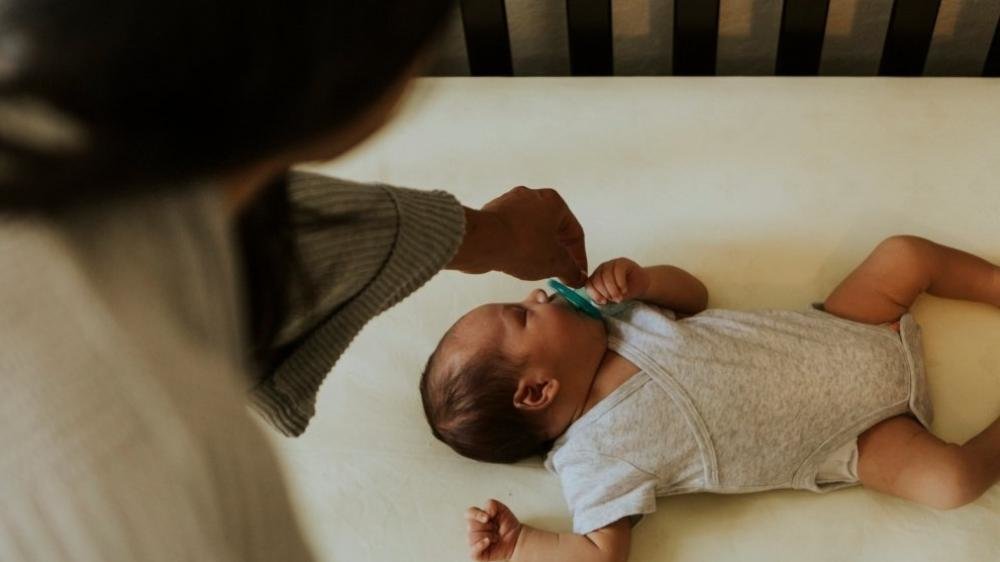
Babies–especially young infants–aren't meant to sleep through the night, but at some point, mamá is going to need to sleep again. While you're waiting for your baby to grow and develop enough to be able to sleep for solid stretches at night, it's a good idea to start implementing some tips and tools that can help build healthy sleep habits to help your baby get a good night's rest once it's developmentally possible.
More from MamásLatinas: 9 New sleep rules to prevent SIDS & keep your baby safe
By the time my first child was 6 weeks old and we were still waking up every two to three hours at night with naps lasting no more than 45 minutes during the day, I knew we had to do something so we could both get better sleep. I was a mess and I was pretty sure my baby needed more rest, so I did some research and decided to start implementing sleep routines for both naps and nighttime.
Within a few weeks he was sleeping through the night and I was feeling a lot less like a zombie. Babies thrive on routine and love consistency, and they typically respond to both pretty quickly–it's well worth the effort. There are lots of products and ideas that you can use to establish a safe and healthy bedtime sleep routine to help your baby get a good night's rest. Click through the slideshow for some of our best tried and true tips and favorite infant sleep products. Just keep in mind that it may still take some time for your baby to sleep through the night — stick with it, and we promise, it WILL happen.
Decide on a bedtime.

It might seem strange or even unnecessary to set a bedtime for an infant, but a big part of getting your baby into a good sleep routine is setting her internal clock. Once baby is used to going to sleep at a certain time, her body will automatically start to get sleepy at that time every day, making it much easier for her to actually fall asleep. Most experts recommend setting bedtime for 12 hours before you would like to wake up in the morning. For example, if 7:30 a.m. seems like a good time to wake up in the morning, you want your baby's bedtime to be 7:30 p.m.
Come up with a manageable bedtime routine.

Your baby's bedtime routine should start about half an hour before lights out, and involve any calm, soothing steps that you can commit to doing around the same time every night. Essentially, the things you do as part of a bedtime routine act as sleep cues so that baby begins to recognize and understand that these things lead up to sleep and starts to wind down.
A nightly bath is relaxing and practical.
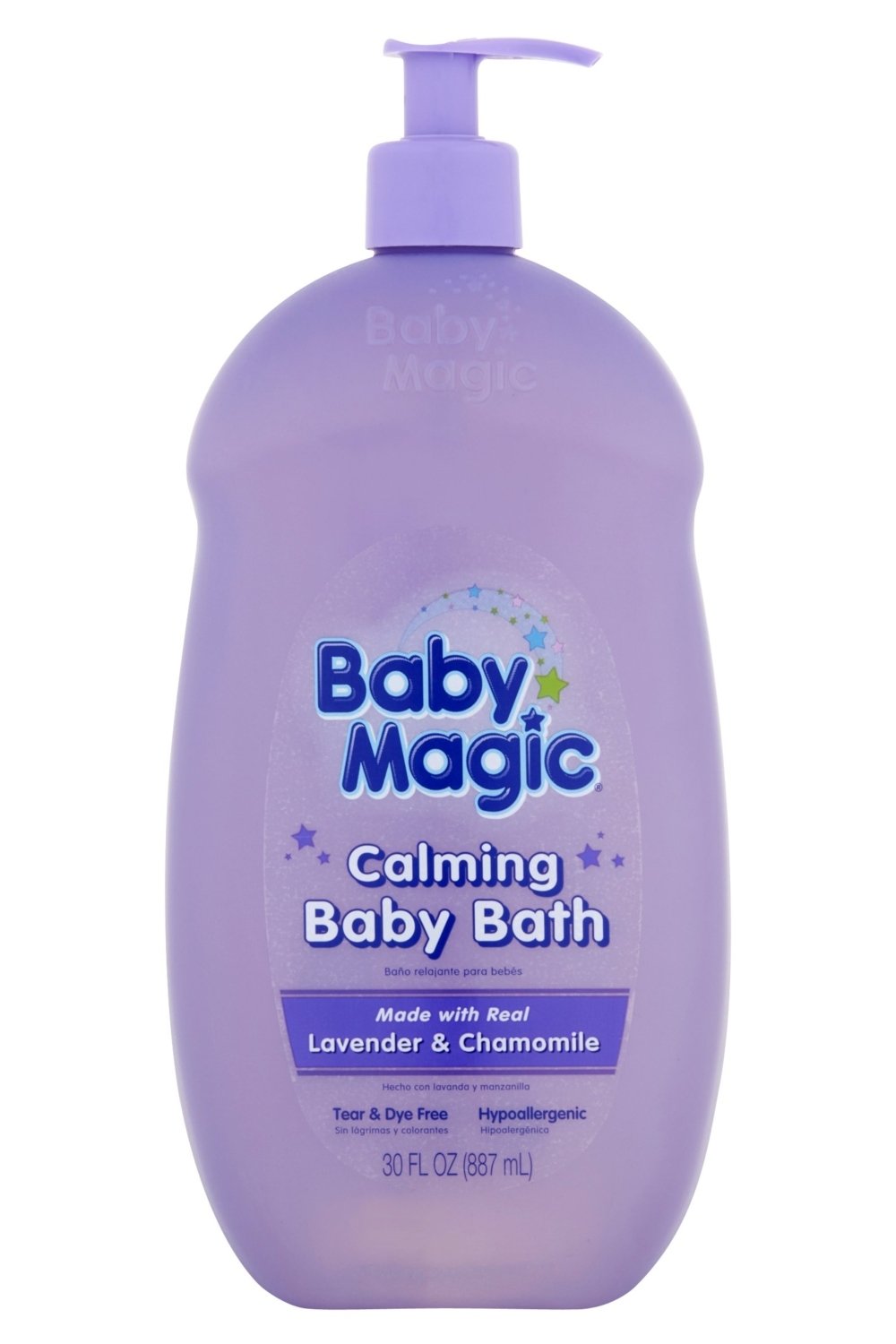
A nightly bath is a popular part of infant bedtime routines because with all the pooping and spitting up and drooling, babies can get kind of yucky by the end of the day. The warm weather can also be ultra-relaxing, especially when enhanced with bubbles scented with lavender and infused with chamomile like the Baby Magic Calming Baby Bath, $4.
But a gentle wash can also do the trick.
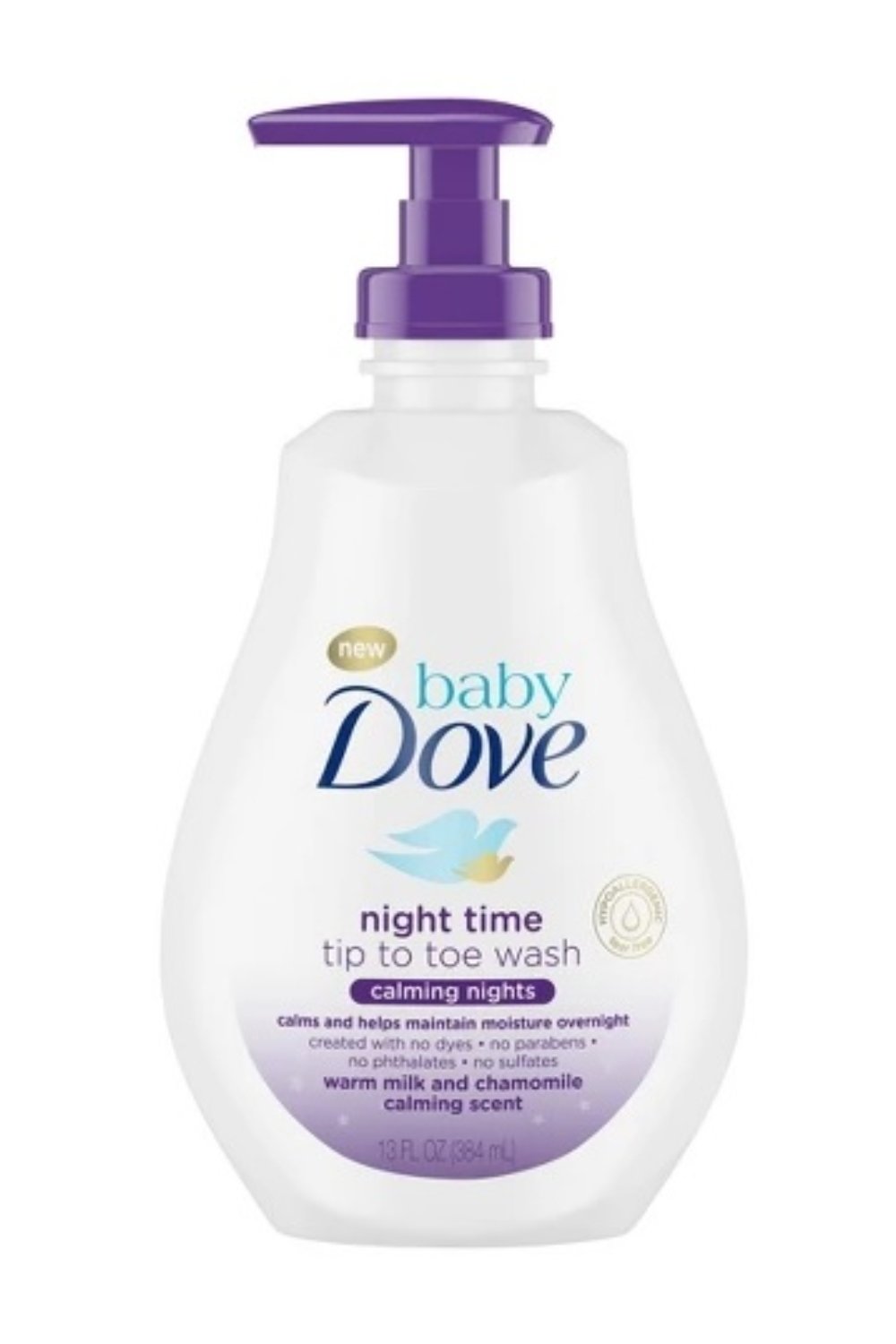
A nightly bath can be a big time committment though, especially if you have more than one child. You can also do a simple, gentle wipe down with a warm washcloth and body wash like Baby Dove Nighttime Tip to Toe Body Wash Warm Milk and Chamomile, $8.
Infant massage has tons of relaxing benefits.

I didn't know much about infant massage with my first child, who did get a nightly bath, but with my second who got the sponge bath some nights, I always took a couple of minutes to rub her little body down with a sleepy time lotion like Baby Dove Night Time Lotion, $8. It's a quick and simple way to help your baby relax from head to toe before bedtime.
Keep lights dim in the evening.

When getting your baby to sleep at night, it's important to teach them the difference between night and day. An intuitive way to do so is by simply dimming the lights and keeping things quiet during the evening hours. So at the start of the bedtime routine, go around and dim lights, turn off the television, and keep voices soft to keep baby from getting overstimulated and thinking it's still playtime.
Bedtime is the perfect time for a story.

After baby is all cozy in jammies, it's the perfect time to snuggle up with a bedtime story. Story time is a great passive activity for baby before sleep and a wonderful opportunity for bonding and relaxation.
Turn out the lights and snuggle.

I'm a firm believer in keeping contact as close as possible for as long as possible during the bedtime routine. I rocked both of my children as close to sleep as possible in a dark room for as long as they wanted to, because it worked. Though some people advise against letting baby fall into a deep sleep in your arms, if you have a solid bedtime routine in place, it probably won't be much of an issue. So once you finish up the bedtime story, shut the lights off and snuggle your baby so that your breath and heart rate sync up. It's totally soothing to a baby!
Learn your baby's sleep cues.

As you're establishing your baby's bedtime routine, look out for her specific sleep cues. Every baby acts differently when they are sleepy–some cues might be eye rubbing, yawning, or slower movements–some babies may even go straight to crying and fussing. But if you can recognize your baby's sleep cues, you can get her down before she goes into over-tired freak-out mode.
Try white noise.
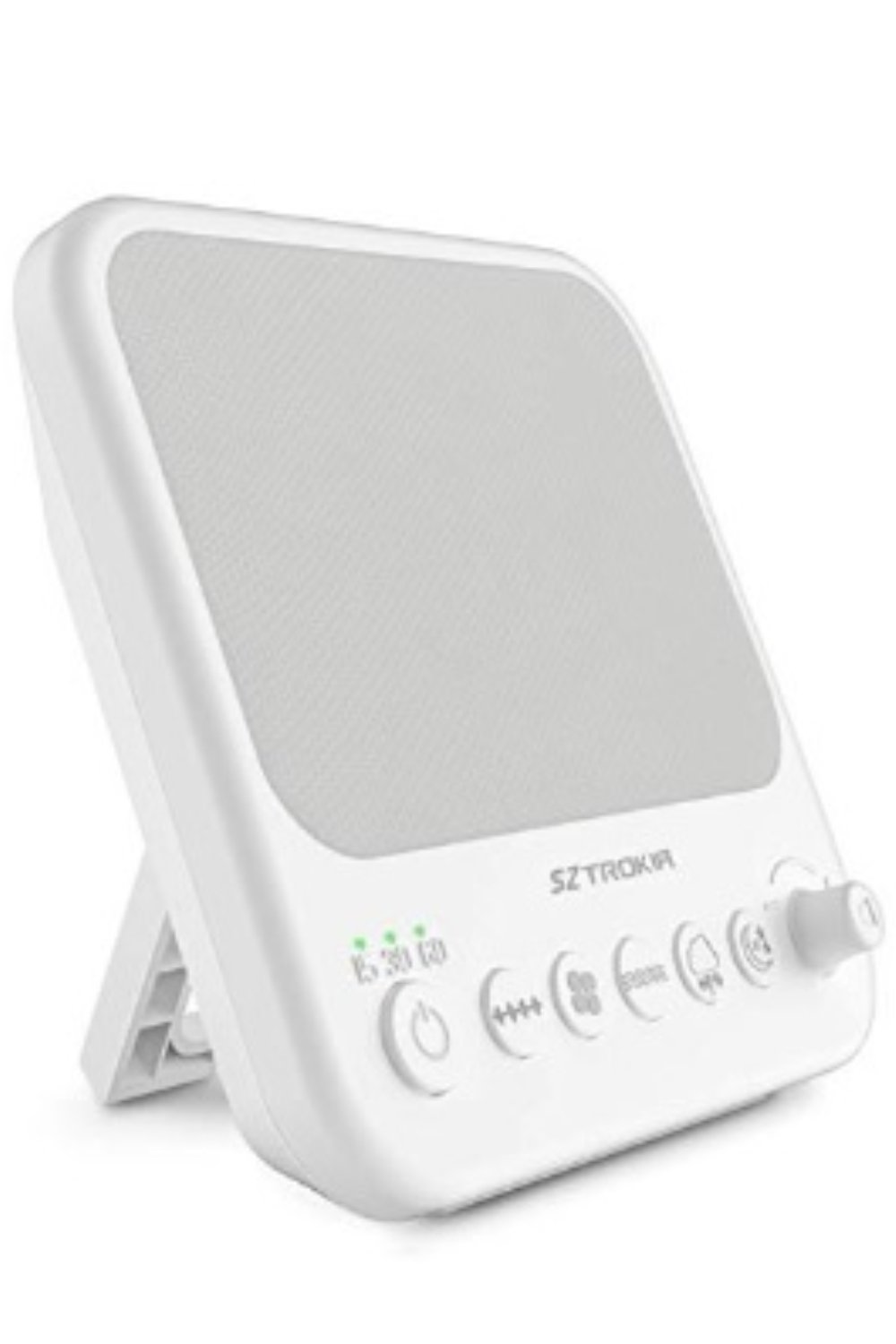
Using a white noise machine in your baby's nursery serves double duty as a sleep cue–when baby hears the sounds, he knows it's time to sleep–and, of course, for blocking out potentially disruptive noise from the household and environment, which gives the rest of the family more freedom to go about normal life while baby is getting to sleep. We love the simple and affordable Sztrokia Sleep Sound Machine, $30.
Keep the room dark.

If your baby has a sunny room, it's a good idea to block out the light a bit to avoid early wakings. Room darkening shades are a simple and easy-to-install solution. We like paper or vinyl shades like the cordless 1-2-3 pleated shade by Achim, from $15.
Blackout curtains are also a good option.

You can also spring for blackout drapes or room darkening curtains for a more permanent fix with a more decorative touch to keep baby from waking up at the crack of dawn. The Curtainworks Lenox Room Darkening Curtain Panels, from $11, from Target are a pretty option.
Buy Curtainworks Room Darkening Curtain Panels at Target from $11.
Stop changing diapers in the middle of the night.
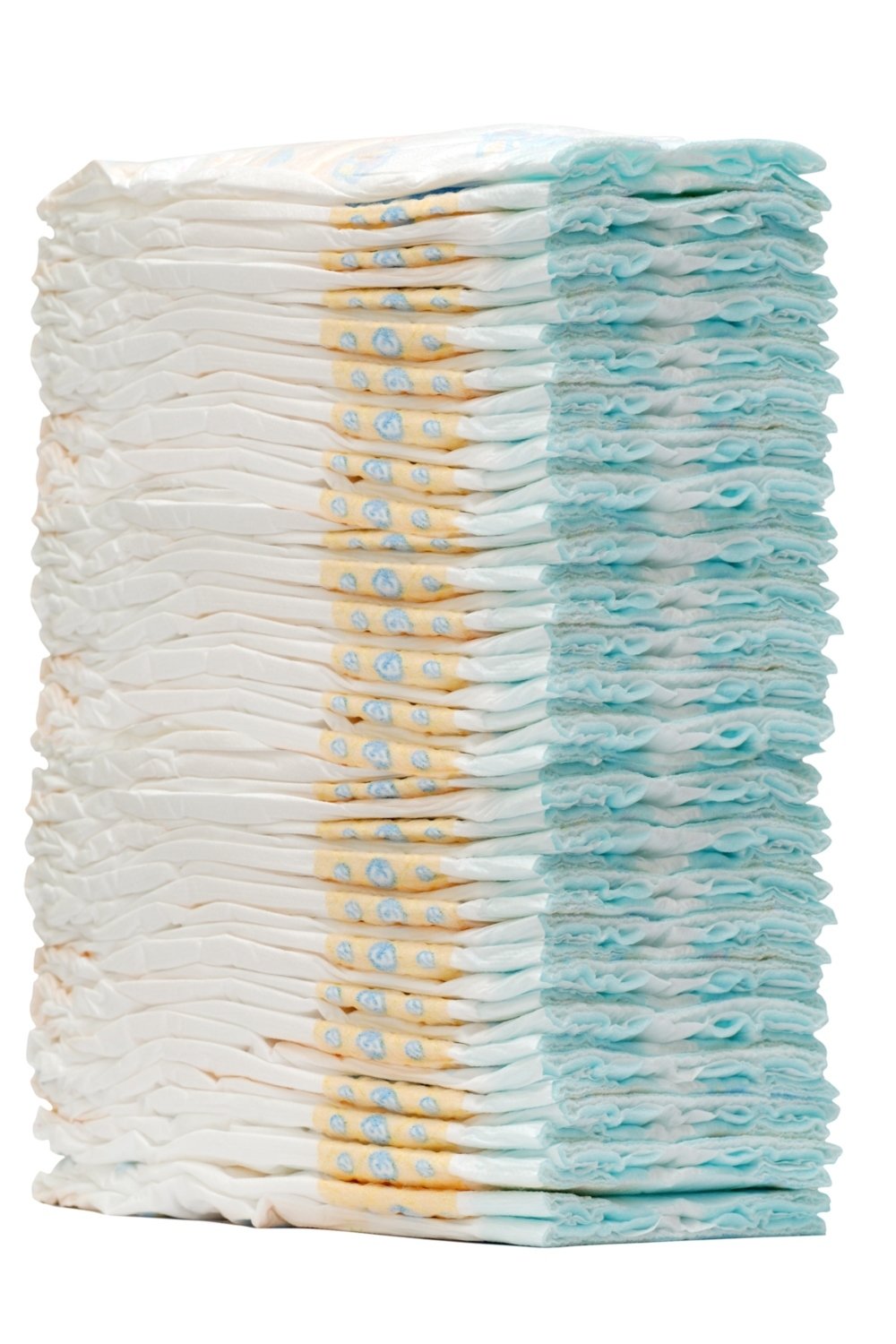
Once your baby starts sleeping through the night, there's no need to wake him up for diaper changes. In fact, even if your baby is still waking up for feeds in the night, you don't need to change diapers unless he poops. Doing so can take baby out of a sleepy state, and make it really difficult to get him back to sleep. Just put a thick coating of a good quality diaper cream on before bedtime.
This diaper cream works so well.

I used Natural Boudreaux's Butt Paste on both of my kids every night before bedtime from birth and they rarely had diaper rashes. For an even cleaner option, you can try unrefined virgin coconut oil, which works well for a lot of babies.
You can skip the burping, too.

Unless your baby typically experiences uncomfortable gassiness after feedings, you can also skip burping after middle-of-the-night feeds, which can sometimes rouse babies from a groggy state. This is especially true if your baby is breastfed since breast milk is more easily digested.
Help baby feel secure by swaddling.

Swaddling infants helps keep them from waking themselves when their arms involuntarily jerk and twitch during sleep. I recommend swaddling your baby for as long as possible–meaning, until they can consistenly break out of even the best swaddle or start rolling over in their sleep. The SwaddleMe swaddle blanket takes the guesswork out.
Lots of parents swear by this sleep suit.

Many parents with babies who either don't like to be swaddled or are like escape artists at breaking out of a swaddle have turned to the Baby Merlin's Magic Sleep Suit. The idea is similar to that of a weighted blanket in that it uses a tiny bit of weight to create a warm, comforting sleep environment for baby, while still being totally safe for nighttime sleep.
Stick with a sleep sack for older babies.

Once your baby has outgrown the swaddle, a sleep sack or wearable blanket like the Halo SleepSack is a great way to keep her warm and cozy through the night. My daughter used one until past two years old and slept like a dream.
Forget "never wake a sleeping baby."

On days your baby decides to take long naps during the day, it can be tempting to just let him sleep, but that often doesn't bode well for nighttime sleep. Typically, a solid daytime sleep routine has positive effects on nighttime sleep. We recommend limiting daytime naps to no more than two hours each. And yes, that means that sometimes you might have to wake your baby.
Try "eat, wake, sleep" during the day.
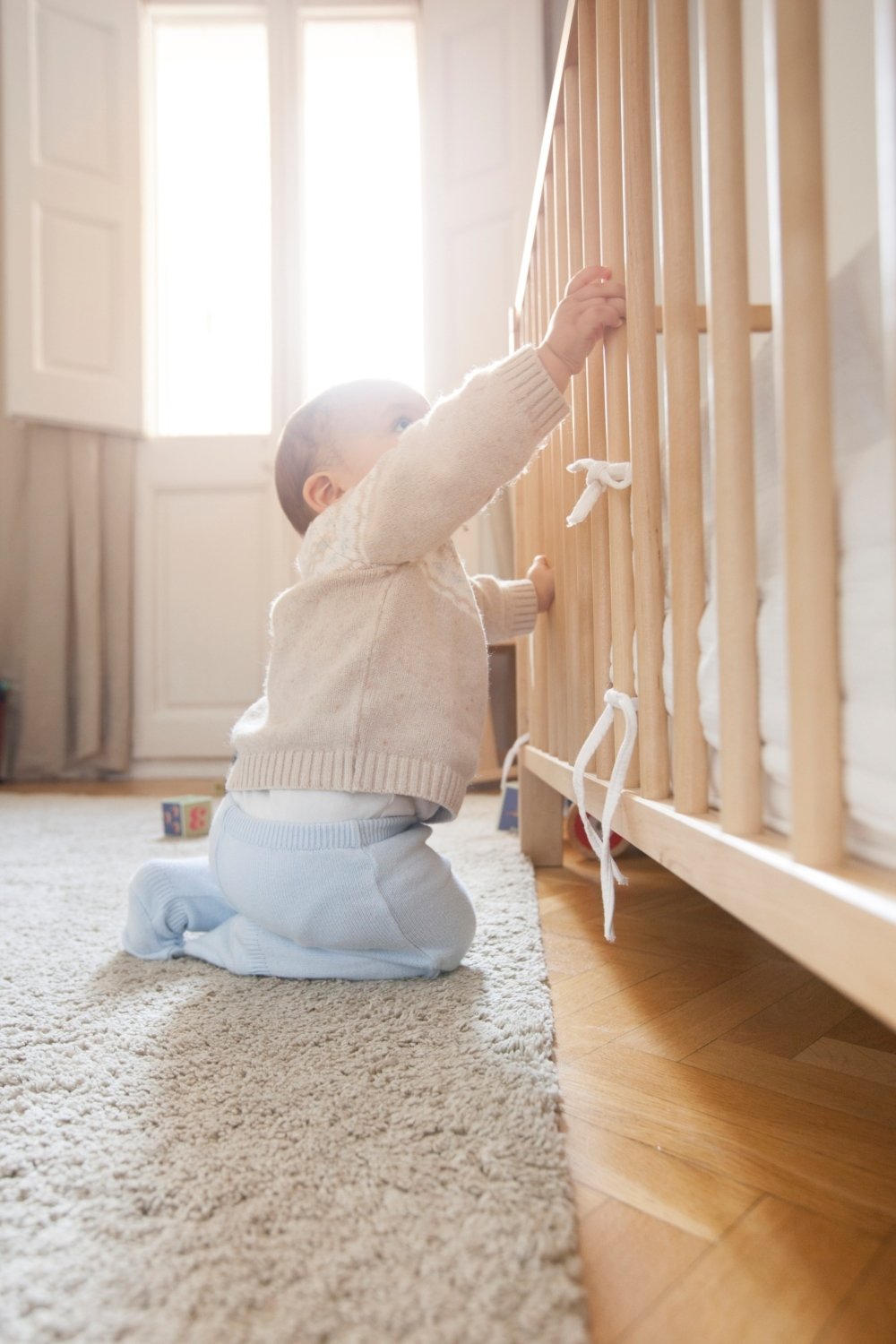
Because your baby's daytime routine does have the power to set her up for good sleep at night, it's worth establishing at least a flexible routine during the day. We are big fans of the "eat, wake, sleep" routine. It basically means that your baby will wake up in the morning and from naps throughout the day and immediately eat, then have some age-appropriate play time before going back down for another nap. This allows baby to 1. expend plenty of energy before sleeping and 2. learn not to rely on the bottle or breast to fall asleep.
Learn about age-appropriate wake times.

Babies have surprisingly short wake times, and when baby stays up longer than developmentally appropriate, he can quickly go from pleasantly sleepy to cranky and fussy. Recommended wake time length for newborns is generally no longer than 45 minutes and for 1-year-olds its still only about three hours. Wake times vary from child to child, but not usually by more than a few minutes either way. If you go past your baby's just-right wake time, you run the risk of an overstimulated baby that can't sleep despite your best efforts. That means your baby's head should be on the mattress before you hit that point.
Avoid overstimulation.

Oftentimes babies who can't sleep are simply overstimulated, which is something that can happen once in a while or be a chronic issue. While some babies are more sensitive to stimuli than others, in general a lot of bright lights, loud sounds, and things like lots of talking from strangers can be overstimulating and cause crankiness, poor sleep or no sleep. Limit the length of outings and visits with friends and family and be sure to allow plenty of soothing wind-down time before attempting sleep.
Keep lights off during nighttime feeds.

It may take some getting used to, but it's best to avoid turning on overhead lamps and anything beyond the dimmest lamps for nighttime feedings. Try using only a small night light, or you can do like I did with both kids and turn the TV on mute and feed baby just by the glow of the television. The less stimulation the better!
Limit nighttime interaction.

I've seen a lot of people who wake up for middle-of-the-night feedings with their baby and instead of keeping interaction minimal, they will turn on lights, greet their baby, talk to their baby, and even play with their baby. That's a huge mistake! When you do this your baby is not internalizing the difference between night and day and is instead learning that any time can be party time, no matter the hour. The middle of the night should be for feedings and essential care only. Even if your baby is giggling and cooing, you have to stay neutral and calming.
Introduce a comfort item.
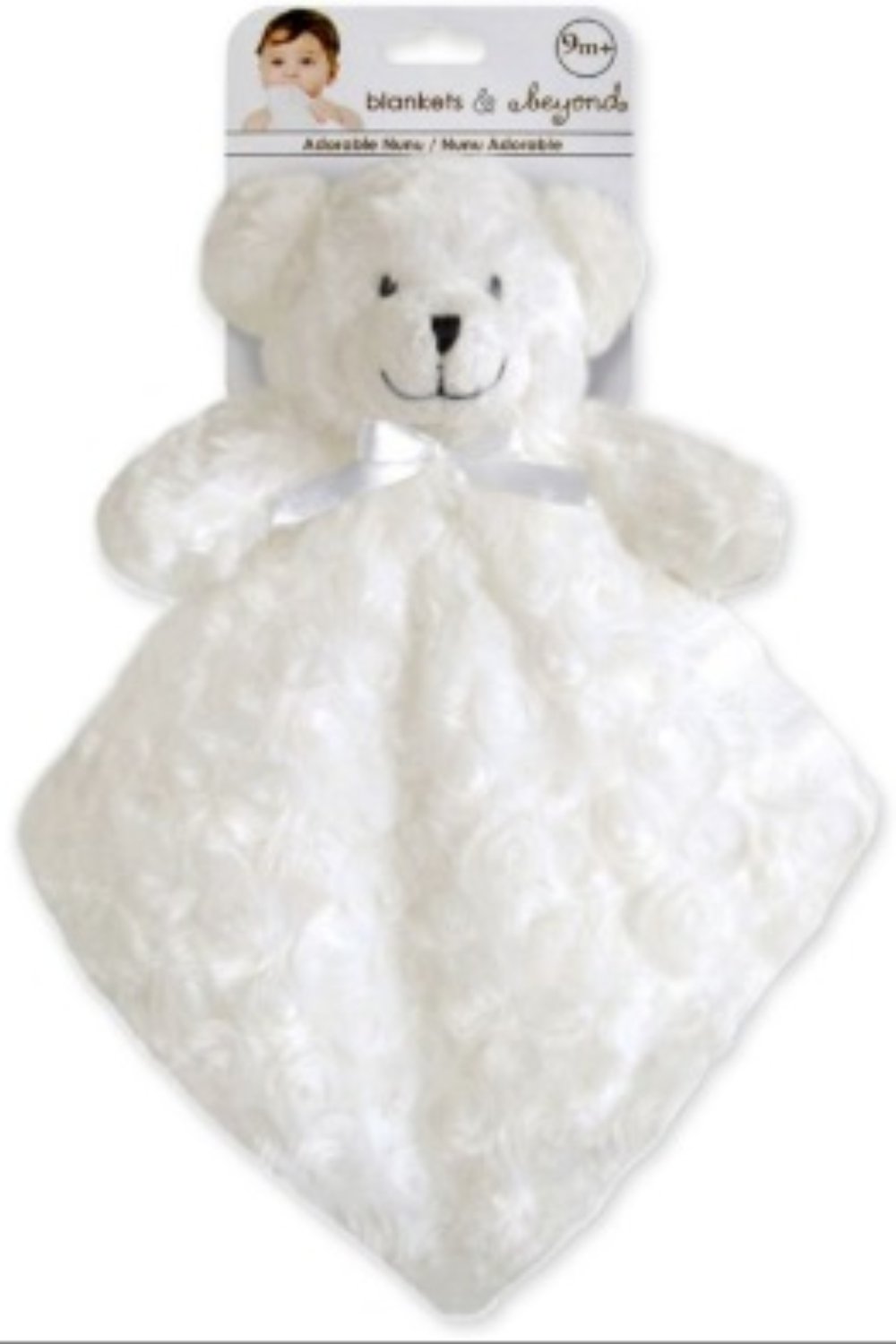
Safe sleep conditions are of course most important, but once your baby is old enough, we recommend introducting a comfort item like a lovey or a blankey. We love the ones like this adorable Rosette Nunu Bear by Blankets and Beyond — they are incredible soft and durable.
Give essential oils a try.

I've used lavender essential oil on and off for years to help my children wind down. Typically I mix a couple drops of the oil with some coconut oil and apply like I would Vicks, but this Slumber & Sleep Essential Oil Roll-On is a great option.
Buy Slumber & Sleep Essential Oil Roll-On from Amazon for $13.
You can also diffuse lavender oil before bedtime.
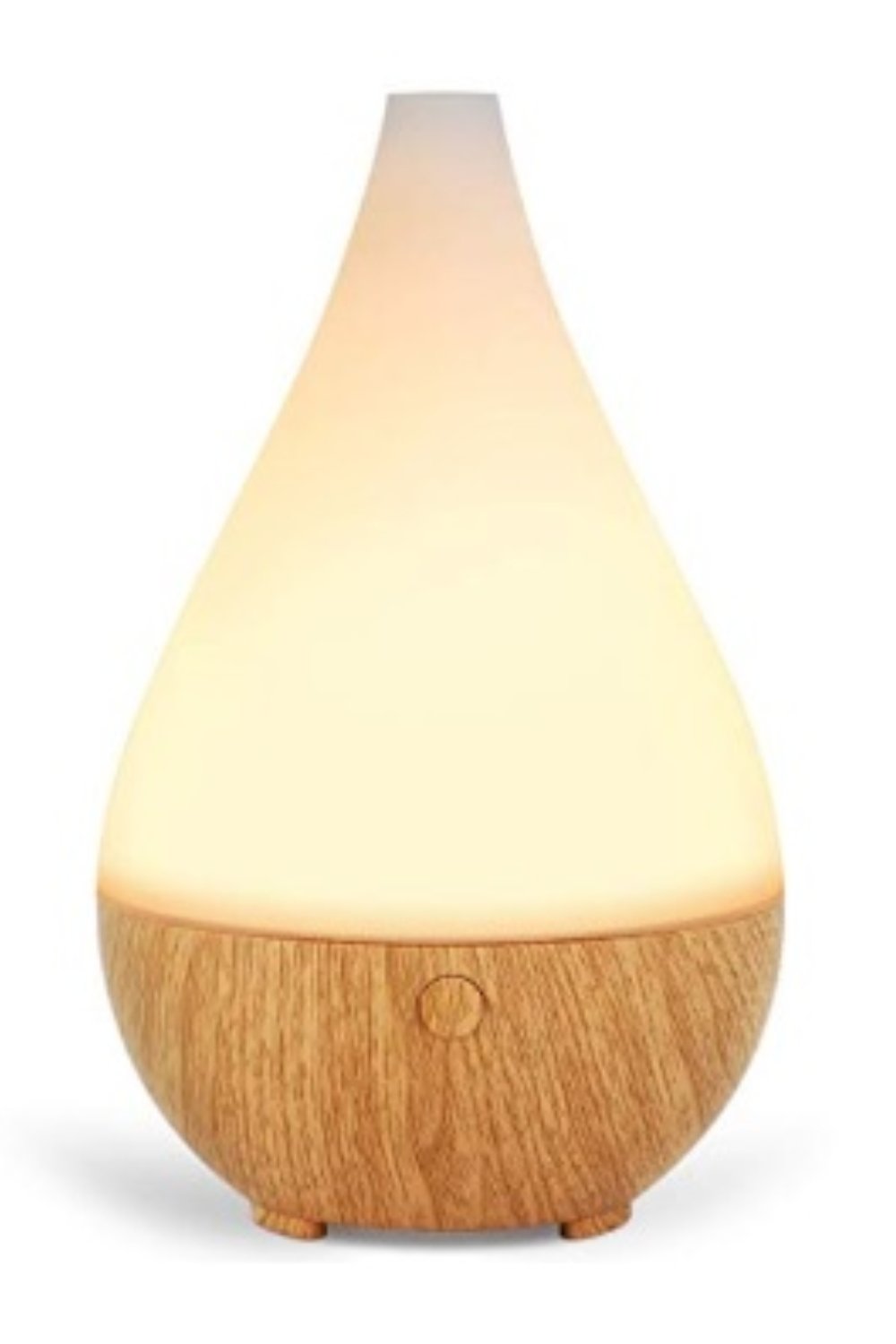
If you would rather not use essential oils topically, you can also diffuse lavender essential oil throughout your home or just in the baby's nursery before bedtime or even throughout the night in a diffuser like this Innogear Ultrasonic Aromatherapy Diffuser, which also doubles as a cool-mist humidifier and night light.
Practice "the pause."

When you hear your baby fuss or cry out briefly in the night, wait just a minute before rushing in. Sometimes babies make noises as they transitions between sleep cycles or even just because they are dreaming. Many times they are actually not waking at all and if you rush in you will wake them up when they may have just gone back to peaceful sleep naturally, if given the opportunity.
Be calm and consistent.

It's easier said than done–I know, I've been there–but, do your best to stay calm and consistent, no matter how many times your baby wakes in the night. Stick to the plan as best you can, but also know that if you cave and hold baby for a while because you're desperate for a rest, it won't destroy all your efforts. You can try again tomorrow.
Don't give up!
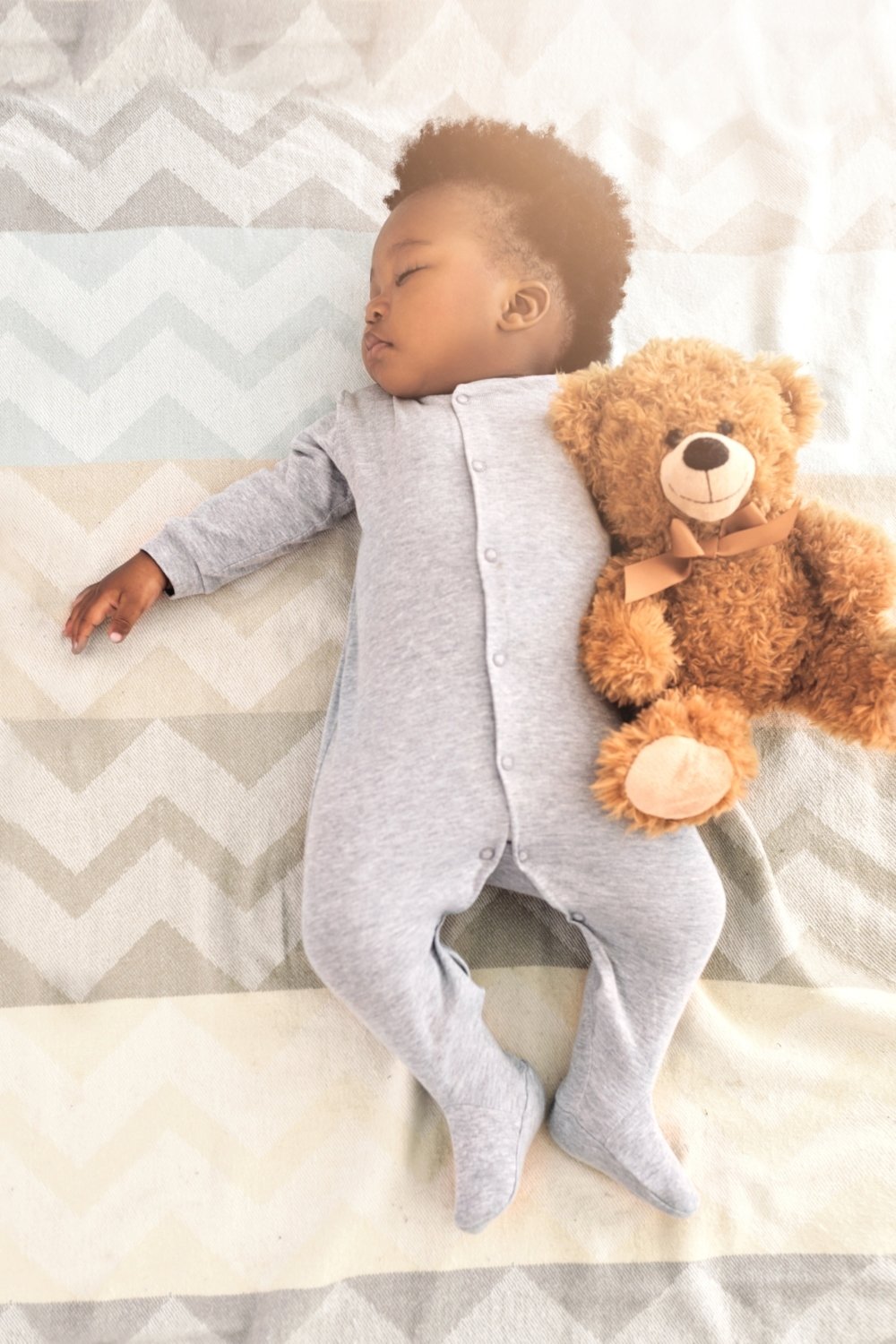
If you stay committed to the bedtime routine and establish safe and cozy sleep practices, your baby's sleep will improve eventually. Some babies take longer to sleep long stretches at night and sometimes sleep even gets worse before it gets better. Stick with the plan for a couple of weeks before abandoning it or making any drastic changes. Consistency is key and most babies will respond to it fairly quickly.
Psst: If you choose to purchase an item on this list, MamásLatinas may receive a small cut. Each item and price is up to date at the time of publication; however, an item may be sold out or the price may be different at a later date.
Pin It!

Add this graphic to your Pinterest boards to save these 30 products to help your baby sleep.




